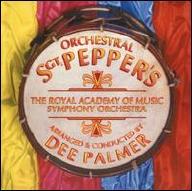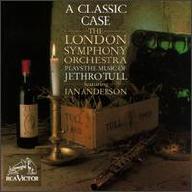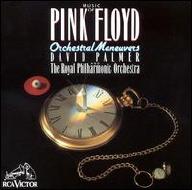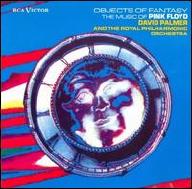In 1967, she made her debut as an arranger and conductor in popular recording, with work on the orchestral accompaniment for the Bert Jansch album Nicola. One year later, Palmer was hired by producer Terry Ellis to write the horn and string parts for the song Move on Alone by Jethro Tull for what would become their first album, This Was. In those days, there were relatively few trained arrangers or conductors -- other than those directly employed by the record labels, such as producer George Martin -- willing to work with hard rock bands and treat the work seriously, and Palmer was one of the more inspired of them. The results on that one song impressed Ellis and the band sufficiently so that Palmer was hired again, to write the string arrangement for A Christmas Song, which appeared on an EP in England and was later included on the double-album anthology Living in the Past. She also wrote the gorgeous string orchestra arrangement for Reasons for Waiting on Stand Up (1969), which showed a more lyrical and richly melodic side to the group's music than had previously been heard, and pointed the way toward the larger conceptual pieces in their future.
By the time of Aqualung in 1971, Palmer's arrangements were nearly as prominent as the keyboard playing of John Evan, and she had effectively become the sixth member of Tull, in fact if not contractually. Palmer was kept busy on the group's two progressive rock epics, Thick as a Brick (1972) and A Passion Play (1973), and the somewhat more modestly proportioned War Child (1974), and even played with them on-stage during their 1975 tour. She was a part of the group for the next five years, through Stormwatch.
In 1980, Palmer left Jethro Tull and, along with Evan and drummer Barriemore Barlow, tried forming a group called Tallis. She wasn't totally alienated from Tull-founder Ian Anderson or his orbit, working with the singer/flautist/composer on a German television appearance in connection with Anderson's first solo album. And it was Jethro Tull that led Palmer to a solo recording career, when she was engaged in the '80s to arrange and conduct an orchestral tribute album to the band entitled A Classic Case. It became the first in a series of such albums devoted to the work of Yes, Genesis, et al. She also kept busy writing, arranging, and conducting music for movies and television in the years after leaving Tull. Palmer's later orchestral tribute albums have included rearrangements and recordings of the music of the Beatles and Queen, and an album of Norwegian pop music standards arranged for orchestra. ~ Bruce Eder, Rovi















